The average cost of Liver transplant in Israel starts from ILS 1330000 (USD 350000)
A liver transplant is recommended when the liver is beyond repair. The liver has the ability to self-generate, but that has its limits. Consistent damage to the liver pushes it beyond the point of repair, which is when the transplant comes in as the only solution.
Lately, Israel is making some groundbreaking developments in this arena. Their Liver transplant mechanism is something that is spoken of worldwide. With cutting edge technology and an elite team of doctors to perform consistently successful operations, there hardly is anything to worry. Centers like Sourasky Medical Center (Tel Aviv) are considered to be at the forefront of liver transplant and explain the country’s dominance in such complicated procedures.
Other than quality service, the overall cost of operating in Israel is considered to be fairly decent. The cost of getting a liver, however, remains exorbitant. Even as of today, with all the latest technology around, livers cannot be synthesized, consequently making it a priceless aspect of transplant surgery.
The list of donors is seemingly tiny as compared to the list of people wanting a transplant. And that makes matters worse. But in Israel, with the right processes in place, any sort of corruption in this process is neutralized. There happen to be no hindrances in the overall operation, making it crucial in a life-and-death scenario.
| Country | Cost | Local_currency |
|---|---|---|
| India | USD 25090 | India 2086234 |
| Israel | USD 350000 | Israel 1330000 |
| South Korea | USD 250000 | South Korea 335672500 |
| Turkey | USD 52710 | Turkey 1588679 |
Treatment cost

We provide numerous services for your medical journey, including:
We offer packages at reasonable pricing that include a variety of additional advantages, making it a better deal than paying for individual perks at the hospital. Liver Transplant Surgery is inexplicably the exact treatment for acute liver failure or liver cancer or end-stage liver disease.Cirrhosis of the liver is an acute stage in which a patient suffers from immense pain. It happens when the scarred tissues replace healthy tissues in your liver, which can lead to liver cancer. If so, then liver transplant is the only option. The transplant procedure follows a surgical regimen that removes the damaged liver and replaces it with a healthy liver from a deceased donor or a portion of a healthy liver from a living donor., For Liver Transplant Surgery in India, we are providing the best all-inclusive discounted package at Max Super Specialty Hospital, Vaishali with some additional benefits.

MediGence is offering immense facilities for your medical journey such as:
We offer packages at reasonable pricing that include a variety of additional advantages, making it a better deal than paying for individual perks at the hospital. Liver Transplant Surgery is inexplicably the exact treatment for acute liver failure or liver cancer or end-stage liver disease.Cirrhosis of the liver is an acute stage in which a patient suffers from immense pain. It happens when the scarred tissues replace healthy tissues in your liver, which can lead to liver cancer. If so, then liver transplant is the only option. The transplant procedure follows a surgical regimen that removes the damaged liver and replaces it with a healthy liver from a deceased donor or a portion of a healthy liver from a living donor., For Liver Transplant Surgery in India, we are providing the best all-inclusive discounted package at Artemis Health Institute with some additional benefits.
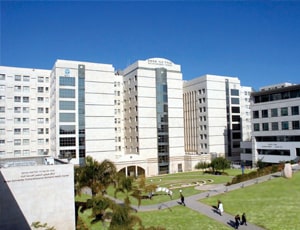
Rabin Medical Center located in Petah Tikva, Israel is accredited by JCI. Also listed below are some of the most prominent infrastructural details:

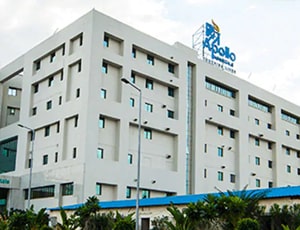
Types of Liver transplant in Apollo Hospital and its associated cost
| Treatment Option | Approximate Cost Range (USD) | Approximate Cost Range (INR) |
|---|---|---|
| Liver Transplant (Overall)Liver Transplant (Overall) | 28346 - 45188 | 2264008 - 3629697 |
| Living Donor Liver Transplant | 34402 - 45598 | 2810180 - 3741540 |
| Deceased Donor Liver Transplant | 28082 - 39850 | 2291470 - 3180259 |
DOCTORS IN 13 SPECIALITIES
FACILITIES & AMENITIES

Types of Liver transplant in Memorial Atasehir Hospital and its associated cost
| Treatment Option | Approximate Cost Range (USD) | Approximate Cost Range (TRY) |
|---|---|---|
| Liver Transplant (Overall) | 61029 - 78345 | 1886907 - 2322174 |
| Living Donor Liver Transplant | 68368 - 80484 | 2071999 - 2333975 |
| Deceased Donor Liver Transplant | 63068 - 71838 | 1827270 - 2208647 |
DOCTORS IN 13 SPECIALITIES
FACILITIES & AMENITIES
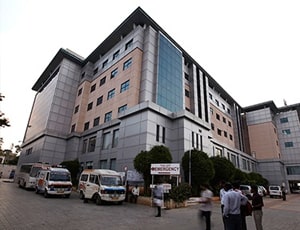
Types of Liver transplant in BGS Gleneagles Global Hospitals and its associated cost
| Treatment Option | Approximate Cost Range (USD) | Approximate Cost Range (INR) |
|---|---|---|
| Liver Transplant (Overall)Liver Transplant (Overall) | 28352 - 45852 | 2304921 - 3608146 |
| Living Donor Liver Transplant | 33848 - 44805 | 2799822 - 3679064 |
| Deceased Donor Liver Transplant | 28542 - 38862 | 2314484 - 3194761 |
DOCTORS IN 14 SPECIALITIES
FACILITIES & AMENITIES

Types of Liver transplant in Wockhardt Hospital, Umrao and its associated cost
| Treatment Option | Approximate Cost Range (USD) | Approximate Cost Range (INR) |
|---|---|---|
| Liver Transplant (Overall)Liver Transplant (Overall) | 25377 - 40770 | 2079671 - 3321678 |
| Living Donor Liver Transplant | 30588 - 40711 | 2502330 - 3316515 |
| Deceased Donor Liver Transplant | 25473 - 35381 | 2078058 - 2910330 |
DOCTORS IN 13 SPECIALITIES
FACILITIES & AMENITIES

Types of Liver transplant in Indraprastha Apollo Hospital and its associated cost
| Treatment Option | Approximate Cost Range (USD) | Approximate Cost Range (INR) |
|---|---|---|
| Liver Transplant (Overall)Liver Transplant (Overall) | 28468 - 45304 | 2289191 - 3686652 |
| Living Donor Liver Transplant | 34103 - 45486 | 2734258 - 3728453 |
| Deceased Donor Liver Transplant | 28255 - 39037 | 2258336 - 3216394 |
DOCTORS IN 14 SPECIALITIES
FACILITIES & AMENITIES
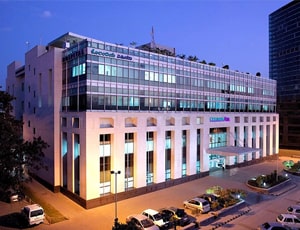
Types of Liver transplant in Manipal Hospital, Yeshwantpur and its associated cost
| Treatment Option | Approximate Cost Range (USD) | Approximate Cost Range (INR) |
|---|---|---|
| Liver Transplant (Overall)Liver Transplant (Overall) | 27888 - 45578 | 2257934 - 3668158 |
| Living Donor Liver Transplant | 33680 - 44824 | 2716485 - 3770101 |
| Deceased Donor Liver Transplant | 27588 - 38916 | 2258018 - 3280567 |

Types of Liver transplant in VPS Lakeshore Hospital and its associated cost
| Treatment Option | Approximate Cost Range (USD) | Approximate Cost Range (INR) |
|---|---|---|
| Liver Transplant (Overall)Liver Transplant (Overall) | 25357 - 40618 | 2072713 - 3333661 |
| Living Donor Liver Transplant | 30355 - 40485 | 2487182 - 3339089 |
| Deceased Donor Liver Transplant | 25467 - 35625 | 2082759 - 2921680 |
DOCTORS IN 13 SPECIALITIES
FACILITIES & AMENITIES
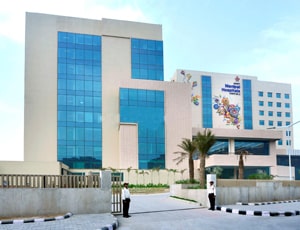
Types of Liver transplant in Manipal Hospital, Dwarka and its associated cost
| Treatment Option | Approximate Cost Range (USD) | Approximate Cost Range (INR) |
|---|---|---|
| Liver Transplant (Overall)Liver Transplant (Overall) | 25444 - 40769 | 2087094 - 3333380 |
| Living Donor Liver Transplant | 30537 - 40685 | 2497059 - 3328383 |
| Deceased Donor Liver Transplant | 25277 - 35386 | 2080628 - 2905696 |
DOCTORS IN 13 SPECIALITIES
FACILITIES & AMENITIES

Types of Liver transplant in Guven Hospital and its associated cost
| Treatment Option | Approximate Cost Range (USD) | Approximate Cost Range (TRY) |
|---|---|---|
| Liver Transplant (Overall) | 61291 - 78468 | 1840484 - 2360419 |
| Living Donor Liver Transplant | 67445 - 78208 | 2023536 - 2421511 |
| Deceased Donor Liver Transplant | 60998 - 72171 | 1882770 - 2178035 |

Types of Liver transplant in Dr. Rela Institute and Medical Centre and its associated cost
| Treatment Option | Approximate Cost Range (USD) | Approximate Cost Range (INR) |
|---|---|---|
| Liver Transplant (Overall)Liver Transplant (Overall) | 28656 - 44874 | 2263791 - 3742283 |
| Living Donor Liver Transplant | 34495 - 45215 | 2754178 - 3648954 |
| Deceased Donor Liver Transplant | 28248 - 39178 | 2322030 - 3257262 |
SPECIALITIES
FACILITIES & AMENITIES
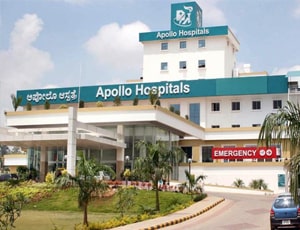
Types of Liver transplant in Apollo Hospitals Bannerghatta and its associated cost
| Treatment Option | Approximate Cost Range (USD) | Approximate Cost Range (INR) |
|---|---|---|
| Liver Transplant (Overall)Liver Transplant (Overall) | 28582 - 44981 | 2263278 - 3713660 |
| Living Donor Liver Transplant | 33014 - 44179 | 2822019 - 3694028 |
| Deceased Donor Liver Transplant | 28091 - 39001 | 2341575 - 3285783 |
DOCTORS IN 13 SPECIALITIES
FACILITIES & AMENITIES
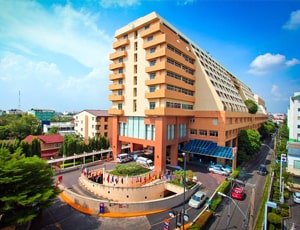
Types of Liver transplant in Vejthani Hospital and its associated cost
| Treatment Option | Approximate Cost Range (USD) | Approximate Cost Range (THB) |
|---|---|---|
| Liver Transplant (Overall) | 55405 - 90539 | 2024121 - 3259061 |
| Living Donor Liver Transplant | 67241 - 90420 | 2391618 - 3139283 |
| Deceased Donor Liver Transplant | 55195 - 77044 | 1993163 - 2796682 |

Types of Liver transplant in Fortis Hospital and its associated cost
| Treatment Option | Approximate Cost Range (USD) | Approximate Cost Range (INR) |
|---|---|---|
| Liver Transplant (Overall)Liver Transplant (Overall) | 25464 - 40661 | 2072332 - 3334562 |
| Living Donor Liver Transplant | 30367 - 40737 | 2500610 - 3337876 |
| Deceased Donor Liver Transplant | 25346 - 35388 | 2087918 - 2906778 |
DOCTORS IN 12 SPECIALITIES
FACILITIES & AMENITIES
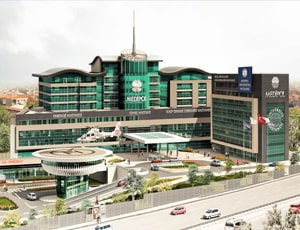
Types of Liver transplant in Medipol Mega University Hospital and its associated cost
| Treatment Option | Approximate Cost Range (USD) | Approximate Cost Range (TRY) |
|---|---|---|
| Liver Transplant (Overall) | 60698 - 77624 | 1838465 - 2355950 |
| Living Donor Liver Transplant | 68259 - 78106 | 2038882 - 2349395 |
| Deceased Donor Liver Transplant | 62823 - 72438 | 1848011 - 2179555 |
DOCTORS IN 12 SPECIALITIES
FACILITIES & AMENITIES
A liver transplant is a surgical procedure where a diseased or damaged liver is replaced with a healthy liver from a living or deceased donor. The liver is a vital organ that performs essential functions, such as:
A liver transplant is usually reserved as a treatment option for people who have significant complications due to end-stage chronic liver disease. A liver transplant may also be a treatment option in rare cases of sudden failure of a previously healthy liver. It is a treatment option for individuals with end-stage liver disease or specific liver-related conditions that cannot be effectively managed with medical therapies or other interventions. Here are some common conditions that may lead to the need for a liver transplant:
Ask your healthcare adviser for the best multiple options and choose the one that meets your expectations
Liver transplant cost in Israel starts from about USD$ 350000. Liver transplant in Israel is available across many hospitals in different states.
The cost of Liver transplant in Israel may differ from one medical facility to the other. The cost quoted by some of the best hospitals for Liver transplant in Israel generally covers the pre-surgery investigations of the patient. The Liver transplant cost in Israel includes the cost of anesthesia, medicines, hospitalization and the surgeon's fee. Extended hospital stay, complications after the surgery or new diagnosis may affect the overall cost of Liver transplant in Israel.
There are several best hospitals for Liver transplant in Israel. For quick reference, the following are some of the leading hospitals for Liver transplant in Israel:
After Liver transplant in Israel, the patient is supposed to stay in guest house for another 50 days. This duration of stay is recommended to complete all the necessary follow-ups and control tests to ensure that the surgery was successful.
Israel is one of the most popular countries for Liver transplant in the world. The country offers the best treatment of Liver transplant, best doctors, and advanced hospital infrastructure. Some of the other top destinations for Liver transplant include the following:
There are certain expenses additional to the Liver transplant cost that the patient may have to pay for. These are the charges for daily meals and hotel stay outside the hospital. The extra charges may vary average around USD$ 75.
Liver transplant in Israel is offered in almost all metropolitan cities, including the following:
The patient is supposed to stay at the hospital for about 10 days after Liver transplant for monitoring and care. The doctors team review the patient's recovery during this time with the help of blood tests and imaging scans. Once they feel that everything is on track, the patient is discharged.
These hospitals have proper infrastructure for the treatment of patients who require Liver transplant
Liver Transplant has proved to be a very successful treatment in Israel and the success rate is more than 92% at well-equipped liver transplant centers across the country. The long-term success rate of liver transplant is also quite high. There is 65% to 70% survival rate 15-20 years subsequent to the transplants. The high success rate is attributed to advanced medical technology, experienced doctors, state-of-art infrastructure and world-class hospitals.
Before undergoing liver transplantation in Israel, you may need to undergo thorough evaluation process, which may include:
It is vital to consider the cost of any major procedure before the patient opts for it. For an individual suffering from an end-stage liver disease, an organ transplant may be the only option to save his/her life. It is always suggested that patients should check their insurance plans to find out the coverage of liver transplants. The cost of a liver transplant may vary depending on a number of factors. This would include the pre-transplant evaluation, surgery and the post-surgery recovery. There are some important factors that can affect the cost of liver transplant in Israel. These are:
Some of the best surgeons for liver transplantation in Israel are:
Deceased donor liver transplantation and living donor liver transplantation are two common approaches for liver transplant in Israel.
Israel has made remarkable developments in the field of liver transplantation. With state-of-art technology and a highly experienced team of transplant surgeons, the country has set a record for consistently performing successful liver transplant surgeries. Israel has some world-class liver transplant centers Centers, such as Sourasky Medical Center in Tel Aviv) and contribute to the country’s dominance in such complex procedures.Other than top-quality medical services, the overall cost of the transplant in Israel is comparatively less. In Israel, with the streamlined processes for liver donors in place, the patient has to face less difficulties in finding a donor. It also has a very high survival rate in comparison to other western countries. Low treatment costs and zero waiting time due to the availability of donors are why Israel has become a leading destination for medical tourists for liver transplant.
Some of the best hospitals in Israel for liver transplantation include:
The 2008 Organ Transplant Law says that the transplants performed outside Israel must also comply with Israeli law. Insurance firms are only permitted to reimburse if transplants are carried out within the limits of these regulations. The Israeli legislation preserves the voluntary procurement policy and apple gives priority to people who join the pool of the organ donors. The Israeli ADI donor card has the option to donate only non-essential organs like skin, kidneys, liver splices, or corneas.
Below are the steps to be followed to undergo liver transplantation in Israel: